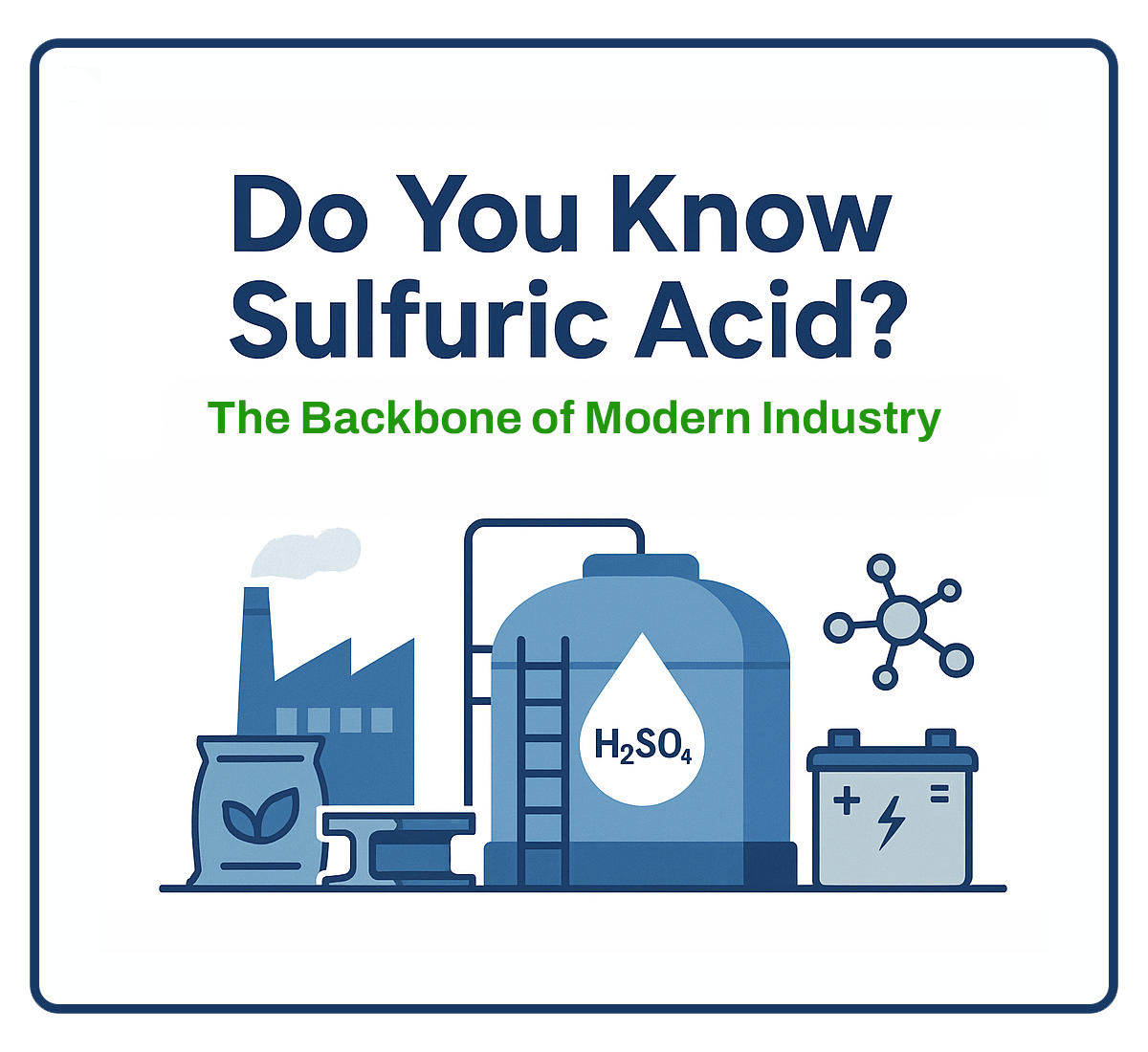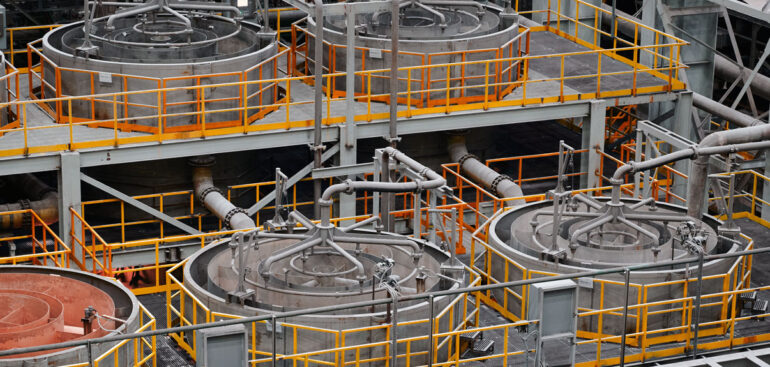Sulfuric acid is the backbone of modern industry. Selecting the right supplier goes beyond price. Learn the five key factors—quality, compliance, logistics, support, and sustainability—that define a reliable partner. Discover how Brainerd Chemical delivers confidence, safety, and expertise in every supply relationship.
Sulfuric acid (H₂SO₄) is one of the most widely used and produced chemicals in the world—an indispensable foundation of modern manufacturing. From fertilizers that sustain global agriculture to batteries powering our vehicles and devices, sulfuric acid quietly drives progress across countless industries.
In fact, by volume, sulfuric acid is the largest industrial chemical produced in the United States, making its demand a trusted barometer of industrial activity and overall economic health.
Why Sulfuric Acid Matters
Sulfuric acid is a vital input in:
- Fertilizers – supporting the production of phosphate fertilizers that feed the world.
- Metals & Steel – essential in ore processing, pickling, and refining.
- Energy Storage – powering lead-acid batteries used in vehicles, backup power, and renewable energy systems.
- Chemicals & Materials – enabling the production of nylon, pigments, synthetic resins, detergents, and pharmaceuticals.
Without it, the world’s ability to grow food, build infrastructure, and develop new technologies would be significantly diminished.
Brainerd Chemical: Delivering Reliability & Stewardship
At Brainerd Chemical Company, we take pride in being a trusted partner to vendors and manufacturers who depend on sulfuric acid every day. Our commitment extends beyond supply—it’s about quality, safety, and stewardship.
- Versatile Supply: We safely deliver bulk, packaged, blended, and cut sulfuric acid in concentrations from 1–93%.
- Food-Contact Certification: Sub-80% concentrations are GFSI certified, enabling use in food contact applications.
- Trusted Reliability: Our nationwide distribution network ensures steady supply, even in volatile market conditions.
- Safety First: Every step of our process—from production to delivery—is built on rigorous safety standards and environmental responsibility.
A Strong Sulfuric Acid Industry = A Strong America
A robust sulfuric acid industry strengthens U.S. manufacturing, innovation, and economic independence. As COO Neil Morgan notes:
“By volume, sulfuric acid is the largest industrial chemical produced in the United States, making its demand a barometer of industrial activity and overall economic health.”
By supplying high-quality sulfuric acid, Brainerd Chemical helps reinforce America’s ability to compete globally, grow sustainably, and innovate boldly.
Selecting Your Ideal Sulfuric Acid Partner
Choosing a sulfuric acid supplier is about far more than comparing prices. The right partner provides a foundation of quality, safety, compliance, and reliability that supports both day-to-day operations and long-term growth.
When evaluating suppliers, companies should consider:
Product Quality & Consistency – Does the supplier meet stringent purity, concentration, and performance standards?
Regulatory Compliance – Can they provide the certifications, documentation, and support needed for strict industry and government requirements?
Logistics & Delivery – Is there infrastructure in place for on-time, safe, and flexible delivery across regions and scales?
Technical Support – Does the supplier provide expert guidance for handling, formulation, and process optimization?
Sustainability & Stewardship – Are environmental responsibility and safe practices at the core of operations?
Confidence at Every Step
At Brainerd Chemical Company, we deliver on every front—backed by infrastructure, expertise, and integrity that industry leaders rely on:
- Safe, reliable supply from 1–93% concentrations
- GFSI-certified sulfuric acid (<80%) for food contact use
- Nationwide distribution with proven logistics capabilities
- Dedicated technical specialists for regulatory and operational support
- A commitment to safety, sustainability, and stewardship
Whether you need bulk supply, customized formulations, or regulatory guidance, Brainerd Chemical is your partner in growth and reliability.
To speak with a technical specialist about sulfuric acid sourcing, compliance, or custom solutions, contact us at +1 (918) 622-1214.
About Brainerd Chemical Company
Brainerd Chemical Company is a leading U.S. manufacturer and distributor of specialty and commodity chemicals, proudly serving critical industries including energy, agriculture, water treatment, and manufacturing. Our mission is simple yet powerful: to safely supply the solutions our customers need, the expertise they want, and the reliability they depend on—every single day.
Media Inquiries
Brainerd Chemical Company
📞 +1 (918) 622-1214
🌐 www.BrainerdChemical.com


